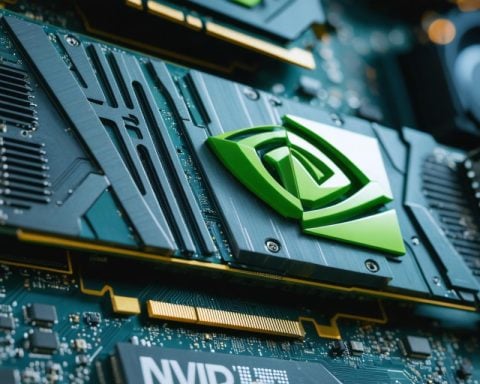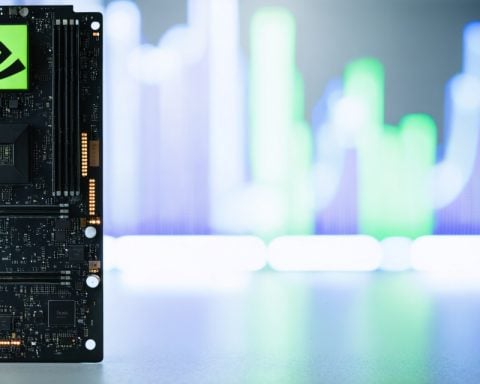- Mercedes-Benz introduces a modified EQS with a revolutionary solid-state battery, developed with Factorial Energy, achieving over 620 miles of range.
- The Solstice battery, featuring advanced sulfide-based solid electrolytes, offers increased energy density and reduced weight, enhancing vehicle efficiency.
- With an energy density of 450 Wh/kg, driving range could increase by 80%, complemented by quicker recharge times and improved safety.
- Collaboration between Mercedes-Benz and Factorial Energy started in 2021, leading to significant advancements in EV technology.
- Mercedes-Benz’s innovative leap positions it as a leader in the race towards solid-state EVs, alongside competitors like Hyundai and Stellantis.
- This development marks a pivotal shift in the automotive industry towards greater sustainability and performance.
Mercedes-Benz has ignited the next chapter in electric mobility, thrusting its innovation from concept to reality with an audacious test. The automaker has put a modified EQS on the road, boasting a revolutionary solid-state battery developed in collaboration with Factorial Energy. This breakthrough promises to redefine the limits of electric vehicle range, offering more than 620 miles, a colossal leap from current capabilities.
Visualize the future: an EQS, exuding elegance, silently glides down the highway, powered by a lithium-metal solid-state battery. This move marks a pivot in the automotive world, steering toward unprecedented energy density and efficiency. The partnership between Mercedes-Benz and Factorial Energy has matured from a handshake in 2021 to a roaring engine of innovation today. Their creation, the Solstice battery, hints at a battery technology revolution.
Sporting a cutting-edge sulfide-based solid electrolyte, this battery promises not only longer range but quicker recharge times, mirroring the adrenaline-fueled efficiency of Formula 1 technology—no surprise, given the involvement of Mercedes AMG High-Performance Powertrains.
Factorial Energy’s Solstice battery boasts a staggering 450 Wh/kg energy density, projected to amplify the driving range by 80% while trimming weight and size. This advancement not only bolsters performance but also ushers a new era of safety and sustainability, potentially setting benchmarks for the entire industry.
As automakers like Hyundai and Stellantis race to roll out their solid-state EVs by the decade’s end, Mercedes leads the charge. This milestone heralds a future where EVs aren’t just vehicles—they’re marvels of human ingenuity, reshaping our journeys and the world’s environmental landscape. On this thrilling racecourse, who will seize the lead? Only time will tell.
Revolutionizing Electric Mobility: How Mercedes-Benz’s Solid-State Battery Sets a New Benchmark
How-To Steps & Life Hacks for Maximizing Your EV Experience
1. Optimize Charging Habits: To maximize the longevity of your solid-state battery, avoid charging to 100% or depleting it completely. Optimal charging levels are between 20% and 80%.
2. Efficient Route Planning: Utilize route-planning apps to identify charging stations along your journey for strategic, minimal downtime.
3. Maintain Optimal Tire Pressure: Proper tire inflation can enhance your vehicle’s range, complementing the benefits of the new high-density battery.
Real-World Use Cases
– Long-Distance Commuting: The increase in range to over 620 miles means less dependency on charging stations for those who have lengthy daily commutes.
– Fleet Management: Businesses can reduce operational costs with fewer charging stops and lower maintenance needs due to increased battery efficiency.
Market Forecasts & Industry Trends
The solid-state battery market is expected to grow significantly. According to a report by MarketsandMarkets, the global solid-state battery market could surpass $6 billion in value by 2030, driven by demands for safer, lighter, and more efficient batteries.
Reviews & Comparisons
– Mercedes-Benz EQS vs Traditional Li-Ion EVs: Compared to traditional lithium-ion batteries, the Mercedes-Benz EQS’s solid-state technology offers 80% increased range and faster charging times.
Controversies & Limitations
– Cost Concerns: Solid-state technology remains expensive to produce on a large scale, which may initially result in higher costs for consumers and slower adoption rates.
– Scalability and Mass Production: The transition from prototype to mass production poses challenges, as scalability of solid-state batteries is still under development.
Features, Specs & Pricing
– Energy Density: 450 Wh/kg
– Estimated Range: Over 620 miles per charge
– While official pricing for models with this battery tech is not yet released, expect premiums over current EQS models due to the advanced technology.
Security & Sustainability
– Safety: Solid-state batteries are less prone to overheating and are safer due to the absence of flammable liquid electrolytes.
– Eco-Friendliness: Reduces the need for resource-intensive materials used in traditional lithium-ion batteries.
Insights & Predictions
– Solid-state batteries are poised to become the new standard in EV technology by the late 2020s due to their superior advantages.
– Mercedes-Benz’s partnership with Factorial Energy may set the standard for future automotive alliances in battery technology development.
Tutorials & Compatibility
– Maintenance: Requires less maintenance than traditional batteries, as there are fewer degradation concerns.
– Retrofitting: Current EVs with lithium-ion setups may not be compatible with solid-state technology without significant modifications.
Pros & Cons Overview
Pros:
– Extended range
– Enhanced safety profile
– Faster recharge times
– Potentially longer battery life
Cons:
– Higher initial costs
– Manufacturing challenges
– Current scalability limitations
Actionable Recommendations
– Stay Informed: Keep up with automotive developments as solid-state technology becomes more mainstream.
– Consider Lifecycle Costs: While the upfront investment might be higher, the long-term cost benefits can be substantial.
To explore more about the future of electric vehicles and energy innovations, visit the official site of Mercedes-Benz for the latest updates.
This new age of electric mobility promises an exciting transformation—embrace it to be at the forefront of automotive sustainability!













